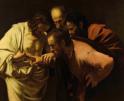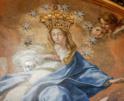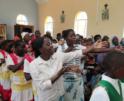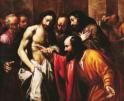
Faith
This Sunday's celebration of Pentecost and the miraculous metamorphosis the Holy Spirit worked in the lives of the first members of the Church, changing them apostates to apostles, from chickens to shepherds, is a fitting opportunity for us to ponder whether the Holy Spirit is truly the "guide" of our day-to-day life.
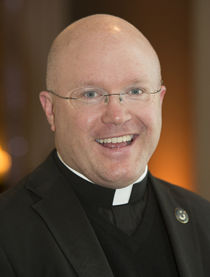
Landry
Many times we can conceptualize the pursuit of holiness as fundamentally our work, but it's really God's work with which we should freely and fully cooperate.
That's why as we examine the component parts of a plan of life, the purpose of which is to help us to grow in holiness, it's essential that we focus on the work of sanctification God is trying to accomplish in us and the extent to which we're collaborating.
This work of sanctification, St. Paul tells us, is carried out by the Holy Spirit (Rom 15:16) whom we invoke in the Rite of Confirmation as our "advocate and guide." This Sunday's celebration of Pentecost and the miraculous metamorphosis the Holy Spirit worked in the lives of the first members of the Church, changing them apostates to apostles, from chickens to shepherds, is a fitting opportunity for us to ponder whether the Holy Spirit is truly the "guide" of our day-to-day life.
Jesus described how important the Holy Spirit is during the Last Supper when he said, "I tell you the truth, it is better for you that I go. For if I do not go, the Advocate will not come to you. But if I go, I will send him to you" (Jn 16:7). Jesus was basically saying that if we had to choose between him and the Holy Spirit, we should choose the latter: that's how important he says the Holy Spirit is! The great joy is that we obviously don't have to have to choose between the two, but it's key for us to grasp that if we take Jesus seriously, we need to take the Holy Spirit at least just as seriously.
The unfortunate reality is, however, that the Holy Spirit remains the "great unknown" in the life of so many. When St. Paul came to Ephesus and met some disciples, he asked, "Did you receive the Holy Spirit when you became believers?" They responded, "We have never even heard that there is a Holy Spirit" (Acts 19:1-3).
In 2008, Pope Benedict commented, "The Holy Spirit has been in some ways the neglected person of the Blessed Trinity," and confessed that it was only as a young priest teaching theology that he began not only to recognize the importance that the Holy Spirit should play in his life as a priest and professor but that he came to know him intimately. He emphasized, "It is not enough to know the Spirit; we must welcome Him as the guide of our souls, as the 'Teacher of the interior life' who introduces us to the Mystery of the Trinity, because He alone can open us up to faith and allow us to live it each day to the full."
And we don't have to be a card-carrying member of the Charismatic Renewal to allow the Holy Spirit to become that teacher and guide.
If we wish to understand the faith, if we wish to live it, if we wish to pass it on, we must allow ourselves to be led by the Holy Spirit, even if we, like the young Fr. Joseph Ratzinger, might be beginning later in life. For us, the "great unknown" must become the "great known," the teacher, the leader, the consoler, the advocate. "The Holy Spirit is the highest gift of God to mankind," Pope Benedict stressed.
As Catholics, how should we be seeking to grow in our docility to this highest gift of God, allowing him to carry out his work of sanctification?
The first is in our prayer. St. Paul tells us, "The Spirit helps us in our weakness; for we do not know how to pray as we ought, but the Spirit himself intercedes for us with sighs too deep for words" (Rom 8:26). The Holy Spirit teaches us how to pray. He does this not principally by putting words in our minds and mouths to say, but changing who we are as we pray, helping us to be conscious of our reality as beloved sons and daughters able confidently to cry out "Abba, Father!" "Daddy!" (Gal 4:6). Do we allow the Holy Spirit to guide our prayer?
The second is in our daily Christian living, which is meant to be a "life according to the Spirit," seeking the things of the Spirit and putting to death the things of the flesh (Rom 8:5). Life according to the Spirit is authentic Christian spirituality; someone who lives indulgently is not genuinely "spiritual," but rather carnal. To be spiritual means to follow the Spirit's guidance throughout the day, seeking to live by his wisdom, knowledge, understanding, prudence, courage, reverence and awe (Is 11:2) and consciously allowing him to guide us and the choices we make. Living by the Spirit means recognizing that each of us has been given a "manifestation of the Spirit" for the common good and using those gifts for God and others (1 Cor 12:7). It also means allowing and accepting that the Holy Spirit will occasionally prevent our doing even good things to guide us in other directions (Acts 16:6-7). Do we allow the Holy Spirit to guide the nitty gritty of daily life?
Third, we need to be cooperate with the Holy Spirit's work to make us witnesses of the faith. The Holy Spirit was sent upon the first members of the Church as tongues of fire so that they could proclaim the Gospel with ardent love (Acts 2:3). Jesus had promised that the Holy Spirit he would send would teach us all things, lead us to all truth, and remind us of everything he had taught us, precisely so that we could give this witness, assuring us that the Holy Spirit would provide the words under trial (Jn 14:26; Mk 13:11). Our sanctification involves our cooperation in the Spirit's work of helping us to complete Jesus' mission of the salvation of the world. Do we give evidence of tongues and hearts of fire?
St. Paul implored the Thessalonians "Do not quench the Spirit!" (1 Thess 5:19) and begged the Ephesians "Do not grieve the Spirit of God!" (Eph 4:30). How much we grieve the Holy Spirit when we limit the work he's trying to accomplish in us, when we treat him as an unknown or merely a theological component, as something other than God's greatest gift.
The celebration of Pentecost is an occasion for us to resolve to please the Holy Spirit by giving him full reign. That's the essence of the Christian life. Docility to the Holy Spirit is what underlies all parts of the program of sanctification that we call the plan of life.
- Father Roger J. Landry is a priest of the Diocese of Fall River, Massachusetts, who works for the Holy See’s Permanent Observer Mission to the United Nations.
Recent articles in the Faith & Family section
-
Wounds, not scarsJaymie Stuart Wolfe
-
A special collection in the liturgy libraryFather Robert M. O'Grady
-
Witness to a Transfiguration in KenyaMichele Miers
-
Understanding the ScripturesScott Hahn
-
'Cabrini' does extraordinary job of bringing saint to lifeBishop Nicholas DiMarzio

